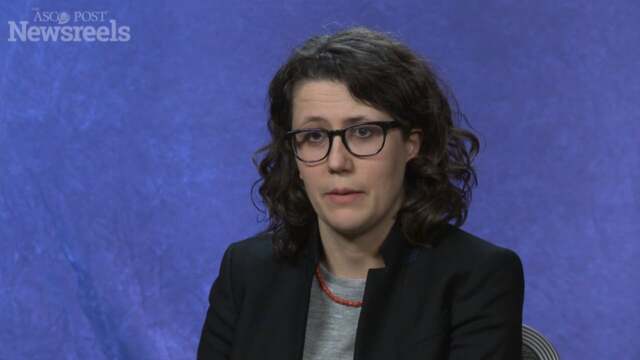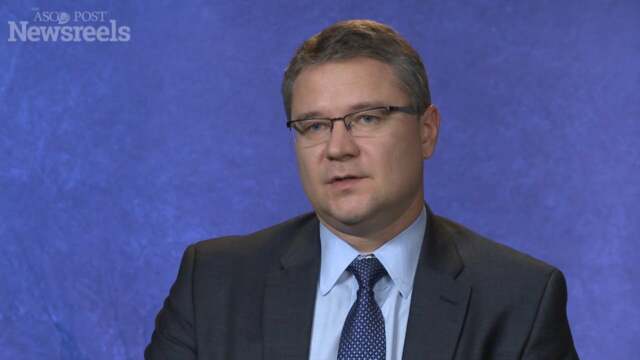Maximilian Diehn, MD, PhD, on Liquid Biopsies/Cell-Free DNA: Clinical Uses
2017 Multidisciplinary Thoracic Cancers Symposium
Maximilian Diehn, MD, PhD, of Stanford School of Medicine, discusses promising clinical applications of circulating tumor DNA in patients with thoracic malignancies: noninvasive detection of resistance mechanisms to targeted agents and treatment response assessment.
Zofia Piotrowska, MD, of the Massachusetts General Hospital Cancer Center, discusses heterogeneity and variation in resistance mechanisms among EGFR-mutant non–small cell lung cancer patients with at least one postresistance biopsy (Abstract 1).
Boris Sepesi, MD, of The University of Texas MD Anderson Cancer Center, discusses immune cells within tumors and the potential role for checkpoint inhibitor therapy in the neoadjuvant setting of locally advanced lung cancer (Abstract 7).
Tracey L. Evans, MD, of the University of Pennsylvania, discusses the data supporting use of chemotherapy with radiation in locally advanced non–small cell lung cancer, targeted treatments and immunotherapy, and some of the controversies now debated.
Martin J. Edelman, MD, of Fox Chase Cancer Center, discusses study findings from a phase III study of celecoxib in addition to standard chemotherapy for advanced non–small cell lung cancer with COX-2 overexpression (Abstract 2).
Douglas E. Wood, MD, of the University of Washington, discusses the importance of broad access to and education about lung cancer screening—now approved for people at high risk for the disease—and the need for expanded criteria for screening eligibility.





